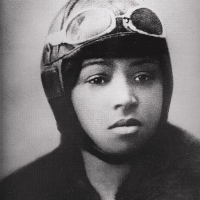Henry David Thoreau’s time spent at Walden Pond was not a fluke; it was a carefully planned and executed choice to live deliberately according to Thoreau’s transcendental beliefs. I would use a study of Walden to connect to the Lao …
In the Ted Talk “The power of believing that you can improve,” psychologist and Stanford professor, Carol Dweck, delivers her findings about growth and fixed mindsets, which can help viewers uncover the tools within themselves to achieve their dreams. I …
The informational text, Fly High, Bessie Coleman by Jane Sutcliffe in an excellent account of the first African American female. I would hook readers into the topic of perseverance by using the Henry David Thoreau conversation to discuss success and …
Setting aside the 19th century gender-biased language and applying the wisdom to all students, Thoreau is saying something important about success and positive thinking. If students believe they can succeed, then they are halfway home. The power of positive thinking is undeniable. But failure is also crucial. Students must find a balance here between positive thinking and acceptance of their imperfections. Only then will they learn how to persevere.
Before having students read Civil Disobedience by Henry David Thoreau (or an excerpt), I would start a discussion using the conversation about responsibility from Dr. Seuss. This discussion will get students thinking about the role of the individual and how …
Freedom is a concept near and dear to the hearts of kids. Freedom means they can do what they want, when they want. But there are limits to freedom placed on children by parents, schools and society. When kids confront these limits they must decide whether or not to disobey the rules or conform to them. This is an inescapable ethical dilemma that stays with them for the rest of their lives.







